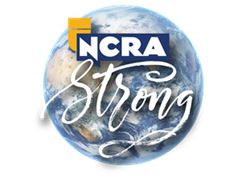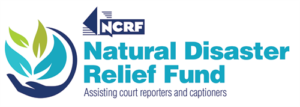By Angela Starbuck
“Hey, Siri …”
Millions of Americans have uttered this phrase, probably even more since the pandemic began. How fitting, then, that one of the most well-known virtual assistants provides the perfect segue for you to advocate for stenography!
Today our profession is facing a huge marketing push by companies and organizations promoting not only electronic recording methods, but now also automatic speech recognition (ASR). With nearly every American being bombarded by ASR everywhere they go (think Google, Siri, Alexa), it’s more important than ever to provide fact-based information about why stenography is still the gold standard when it comes to preserving the record. Whether it’s electronic recording, ASR, or AI (artificial intelligence), these systems are just not up to par with the services provided by a live stenographer.
The NCRA STRONG Committee is tasked with promoting stenographic captioning and court reporting. The committee members spend an extensive amount of time researching information to bring to the membership. This article focuses on one study that is very relatable and may help you in your discussions with attorneys, judges, and court administrators.
This 2021 study done by Frontiers in Digital Health could help make a strong case for stenography over ASR or AI. The follow-up to a 2019 study examines the “comprehension accuracy of popular intelligent virtual assistants (IVA), including Amazon Alexa, Google Assistant, and Apple Siri, for recognizing the generic and brand names of the top 50 most dispensed medications in the United States.” In this study, they played back audio clips from 46 participants to each device, examining how well Alexa, Google Assistant, and Siri comprehended the 50 most dispensed drugs in the United States.
While the study seems to indicate an improvement in accuracy over the two-year span, the comprehension accuracy for all three platforms studied never goes above 86 percent. Siri’s comprehension accuracy was reported at 78.4 percent for brand names and 75.0 percent with generic names, while Alexa never breaks the 67 percent threshold with either brand names or generic.
Imagine how a study like this could help attorneys and judges understand the importance of stenographers, while showing the shortcomings of electronic recording and ASR. Nearly everyone in America understands the concept of Siri and has experienced her mistakes. Yes, the testimony of pharmacists, forensic scientists, and physicians can be challenging to take down. But the advantage we have over technology is we can interrupt or gather context to ensure accuracy.
Is 86 percent comprehension accuracy sufficient when talking about medication names and human patients? The authors of this study state: “Comprehension accuracy of IVAs within healthcare has extremely important implications with respect to delivering appropriate medical information to patients.” It could be a matter of life or death.
Even Verbit, a self-proclaimed “live transcription service,” states in their own marketing piece: “Some fear that using AI will lead to misinterpretations and cause legal trouble for vulnerable populations. Concerns over AI-produced error-ridden transcripts are legitimate. This reality is especially evident when the speakers are diverse or conversing in other languages or dialects, which the AI alone sometimes cannot accurately decipher.”
We would argue that participants in the legal system, i.e., the general public, should be entitled to the same care in transcribing the details of their case. Hundreds of thousands of people interact with the legal system annually. What are the implications of an inaccurate transcription when a court administrator utilizes an electronic recording system for a case which would then be transcribed by a company using ASR and non-stenographic transcribers? And imagine that ASR program is only 86 percent accurate. Imagine the non-stenographic transcriber doesn’t understand some of the terminology or assumes that the ASR program got it right. Is 86 percent accuracy good enough for that individual’s legal case? While it may not be a life-or-death situation, a person could lose their home, their assets, their children. This is not just about stenographers retaining their jobs; it’s about the threat to the American judicial system.
The next time you’re chatting with someone in the legal field like your judge, court administrator, or an attorney and the discussion turns to the electronic recording of testimony, ask them if they would let Siri be their court reporter.
Angela Starbuck, RDR, CRR, CRC, is a freelancer, CART captioner, and agency owner based in Columbus, Ohio. She can be reached at angie@priohio.com.
BIBILIOGRAPHY
Palanica, A., and Fossat, Y. (2021) Medication Name Comprehension of Intelligent Virtual Assistants: A Comparison of Amazon Alexa, Google Assistant, and Apple Siri Between 2019 and 2021. Front. Digit. Health 3:669971. https://www.frontiersin.org/articles/10.3389/fdgth.2021.669971/full, accessed 11/12/2021.
Verbit, marketing materials. https://info.verbit.ai/hubfs/Pagers/Costs_of_
Inaccurate_Transcription.pdf?utm_campaign=Inaccuratepercent20
Transcriptionpercent20Pager&utm_source=email&utm_medium=New_Legal_
Nurture_Email_2&utm_content=New_Legal_Nurture_2021, accessed 11/12/2021/.
| AI | artificial intelligence |
| ASR | automated speech recognition |
| IVA | intelligent virtual assistants |








